
This might be a problem. I just gulped my second cup of coffee for the morning and I realised with a shock that I'm going to spend the next four hours in the cockpit! Rookie mistake. There's still an hour or two before our 06:30 departure time to make amends - so here's hoping for the best.
MY SCHEDULED FLIGHT for the day is to the furthest offshore vessel that we serve in the Gulf of Mexico - perfect profile for the lumbering S-92. It's a straight-line 225NM flight, followed by about 20 minutes on deck, and then the seemingly longer flight back. We're often assigned another stop or two along the way, but today is just straight out and back.
It should be easy. Unless things change, and there's always a good chance of that.
Our company policy stipulates that all S-92s carry return fuel. This means that we must be able to fly 225NM to our destination, execute a missed approach, and then return to base and land with a 30-minute reserve. This seems like a great plan in good weather, but when flying IFR, we depart on a SID (Standard Instrument Departure), plan for an offshore IFR approach / missed approach, and return to base while allowing for yet another approach procedure. All these fuel requirements quickly add up, leaving our standard fuel capacity of around 5,100lbs a little marginal on these longer flights. Fortunately, we have the option of installing internal auxiliary tanks – for our flight today, we have one 210 USG tank installed in the passenger cabin, but it does require three of our 19 passenger seats to be sacrificed.
Our destination drillship has been anchored in the same spot for the past few months and this mission has been flown successfully many times by simply extracting our route from one of the two FMSs (Flight Management Systems).
This story is from the January 2025 edition of SA Flyer Magazine.
Start your 7-day Magzter GOLD free trial to access thousands of curated premium stories, and 9,000+ magazines and newspapers.
Already a subscriber ? Sign In
This story is from the January 2025 edition of SA Flyer Magazine.
Start your 7-day Magzter GOLD free trial to access thousands of curated premium stories, and 9,000+ magazines and newspapers.
Already a subscriber? Sign In
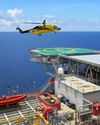
LIVING THE DREAM Part 2: Planning and Pax
Part 2: Planning and Pax
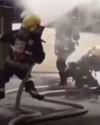
QUEEN AIR TALES
In the early seventies Esquire Airways acquired a pre-owned Beechcraft Queen Air. This top of the range 8,800 lb MAUW model had nine forward facing commuter seats and I flew it as a single pilot operation for several months.
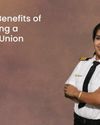
HELICOPTER PILOTS SHOULD UNIONISE
Helicopter pilots are stuck in a 12-month flying cycle. While they will have periods of rest and active rest (performing ground-based tasks and planning ventures) within their work source campaigns, it's not a good situation. They need programmed periods to catch their breath.
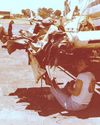
AFTERMATH of the Engine Fire
Iris McCallum continues her stories about her early years with Air Kenya. This month she tells us about the immediate aftermath of her dramatic engine fire and crash, and her subsequent 'getting back onto the saddle'.
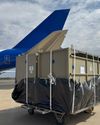
LARGEST EVER RHINO RELOCATION
Specialist air cargo operator ACS mobilised all its skills to successfully complete a very challenging project – the translocation of 39 White Rhino from Namibia to the USA.
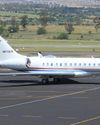
NOVEMBER 2024
November sees strong growth in aircraft registrations with 16 additions, but 10 aircraft are cancelled as exported. The Type Certified additions are a mixed bag.
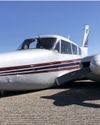
TWINCO FUEL
AIRCRAFT ACCIDENT REPORT
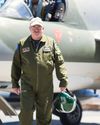
RON WHEELDON'S HUNTERS
RON WHEELDON is a Johannesburg based trademark and IP attorney. He writes, \"My love affair with Hawker Hunter jet fighters started in approximately 1963 when the Rhodesian parliament opening was marked by a fly-by of nine recently acquired Hawker Hunters in diamond formation.
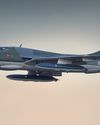
FLYING THE HAWKER HUNTER
Flying a Hunter starts hours before actually walking out to the aircraft. This machine is a legend, but it is first of all about the highest performance machine that it is feasible for a civilian to fly. Flying it is not to be taken lightly.
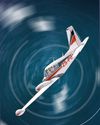
RIGHT SEAT RULES NO. 25 SLOW FLIGHT
Most of us feel a bit edgy when the ASI creeps down within 10 KIAS of the stall. Jim Davis has some hints on how to be comfortable and in control - even when the airspeed is 20 KIAS below the stall.